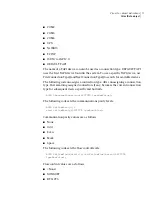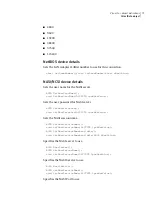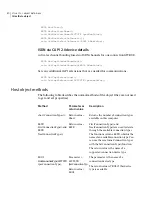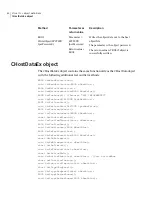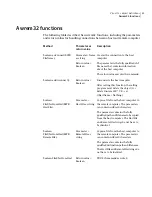
BOOL GetRecordSession();
void SetRecordSession(BOOL bNewValue);
The name of the record file for sessions using this object.
BSTR GetRecordFile();
void SetRecordFile(LPCTSTR lpszNewValue);
Host object Detail methods
When a host object is assigned a connection type, the device details are set to
valid default values.
The following connection types have advanced configuration options that can be
set in your application:
■
COM devices
■
NetBIOS devices
■
NASI/NCSI devices
■
ISDN via CAPI 2.0 (European ISDN only) devices
COM device details
The following code places the requested connection type on the host object’s list
of assigned connection types and makes it the current connection type when
processing subsequent device-specific method calls:
BOOL AssignConnection(LPCTSTR lpszNewValue);
If the requested connection type is already on the list of assigned connections,
the list of assigned connections does not change. Only the current connection
type is changed to the requested type. It is normal to call the AssignConnection
method on the same object multiple times in the course of getting and setting
connection-specific values.
AssignConnection returns TRUE if the connection type that is passed in exists on
the computer and is either successfully assigned or already assigned. It returns
FALSE if either the requested connection type does not exist on the computer or
the current assigned connection count is already at the maximum allowed level.
A pcAnywhere host object can support up to two assigned connection types. The
AssignConnection method returns FALSE if it detects an attempt to exceed this
limit.
The following connection types are available:
■
COM1
Visual C++ object definitions
CHostData object
76
















